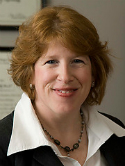Evaluating a physician audit and feedback intervention to increase clinical trial enrollment in radiation oncology in a multisite tertiary cancer center: A randomized study Journal Article
| Authors: | Verdini, N. P.; Gelblum, D. Y.; Vertosick, E. A.; Ostroff, J. S.; Vickers, A. J.; Gomez, D. R.; Gillespie, E. F. |
| Article Title: | Evaluating a physician audit and feedback intervention to increase clinical trial enrollment in radiation oncology in a multisite tertiary cancer center: A randomized study |
| Abstract: | Purpose: Clinical trial participation continues to be low, slowing new cancer therapy development. Few strategies have been prospectively tested to address barriers to enrollment. We investigated the effectiveness of a physician audit and feedback report to improve clinical trial enrollment. Methods and Materials: We conducted a randomized quality improvement study among radiation oncologists at a multisite tertiary cancer network. Physicians in the intervention group received quarterly audit and feedback reports comparing the physician's trial enrollments with those of their peers. The primary outcome was trial enrollments. Results: Among physicians randomized to receive the feedback report (n = 30), the median proportion of patients enrolled during the study period increased to 6.1% (IQR, 2.6%-9.3%) from 3.2% (IQR, 1.1%-10%) at baseline. Among those not receiving the feedback report (n = 29), the median proportion of patients enrolled increased to 4.1% (IQR, 1.3%-7.6%) from 1.6% (IQR, 0%-4.1%) at baseline. There was a nonsignificant change in the proportion of enrollments associated with receiving the feedback report (−0.6%; 95% CI, −3.0% to 1.8%; P = .6). Notably, there was an interaction between baseline trial accrual and receipt of feedback reports (P = .005), with enrollment declining among high accruers. There was an increase in enrollment throughout the study, regardless of study group (P = .001). Conclusions: In this study, a positive effect of physician audit and feedback on clinical trial enrollment was not observed. Future efforts should avoid disincentivizing high accruers and might consider pairing feedback with other patient- or physician-level strategies. The increase in trial enrollment in both groups over time highlights the importance of including a comparison group in quality improvement studies to reduce confounding from secular trends. © 2023 Elsevier Inc. |
| Keywords: | adult; clinical article; controlled study; clinical trial; cancer radiotherapy; outcome assessment; prospective study; neoplasm; neoplasms; multi-site; randomized controlled trial; radiotherapy; oncology; cancer therapy; cancer center; physicians; radiation oncology; multicenter study; physician; feedback system; feedback; diseases; radiation oncologists; quality improvement; medical applications; comparison group; methods and materials; humans; human; male; female; article; radiation oncologist; study groups; quality improvement study; feedback interventions |
| Journal Title: | International Journal of Radiation Oncology, Biology, Physics |
| Volume: | 119 |
| Issue: | 1 |
| ISSN: | 0360-3016 |
| Publisher: | Elsevier Inc. |
| Date Published: | 2024-05-01 |
| Start Page: | 11 |
| End Page: | 16 |
| Language: | English |
| DOI: | 10.1016/j.ijrobp.2023.09.025 |
| PUBMED: | 37769853 |
| PROVIDER: | scopus |
| PMCID: | PMC11853860 |
| DOI/URL: | |
| Notes: | The MSK Cancer Center Support Grant (P30 CA008748) is acknowledged in the PDF -- Corresponding author is MSK author: Erin F. Gillespie -- Source: Scopus |
Altmetric
Citation Impact
BMJ Impact Analytics
Related MSK Work










